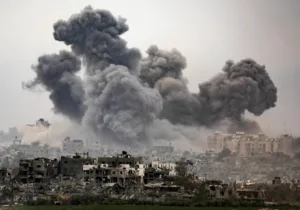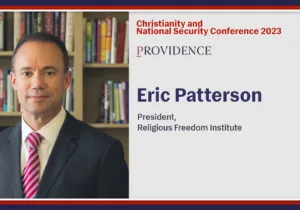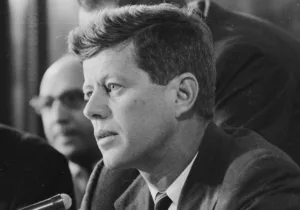Tomorrow marks the 75th anniversary of the “Day of Infamy”—the Japanese surprise attack on the US Naval Base at Pearl Harbor, Hawaii. And while the formal declaration against the Empire of Japan did not occur until the following day, tomorrow marks as well, essentially, the entry of the United States into the Second World War.
That’s not to say, of course, that it marks the start of the war itself. History continues with or without American involvement. Significant precursors, like the Second Sino-Japanese War, had begun far earlier and would help ignite and be swept up into the larger conflagration. The precise beginnings of any conflict are often difficult to pinpoint. Nevertheless, and indisputably, WWII began no later than the 1st of September, 1939, 4:45AM, when the Luftwaffe launched Nazis Germany’s attack against Poland.
By the time Japan hit Pearl Harbor, they had already come to occupy significant portions of northern, central, and coastal China. Japanese brutality against the Chinese would be typified by the Nanking Massacre, a horrific episode of mass murder and mass rape; and by their retaliatory policy against Chinese resistance of the “Three alls”—“kill all, burn all, loot all.” The Japanese had also occupied French Indochina, and drawn up comprehensive plans to seize enough territory to create a vast defensive perimeter in the Pacific sufficient to deny the Allies with staging areas to mount a counteroffensive and, thereby, to prompt a negotiated truce with America. But first, the American fleet needed to be removed.
Europe, meanwhile, was already in flames, the war had been in full-swing for more than two years. Much of the continent, including Poland, Norway, Belgium, France, Luxembourg, the Netherlands, Crete, the British Channel Islands, Yugoslavia, and Greece had already fallen to the Axis powers, as had large swaths of North Africa. The opportunistic Soviet Union had gobbled up large tracts of land in Poland, Finland, the Baltics, and Romania, only to be driven out of much of it as Hitler turned his war against Stalin. By the time the Japanese attack fleet had left northern Japan for the Hawaiian Islands, German Panzers would be on the outskirts of Moscow. Cities on all sides of the conflict had already been reduced to rubble by strategic bombing campaigns as the age of modern war blossomed into the fullness of its violent expression.
Hitler’s other war, the one against the Jewish people, was already proceeding apace as well. Mass deportations of Jews to Poland, coordinated by Adolf Eichmann soon after the Polish invasion, continued. Reinhard Heydrich was appointed to engineer an Endlösung, or final solution, that would provide a particularly Nazis answer to the particularly Nazis question of what to do about the Jews. Concentration camps, though not yet expressly extermination facilities, were already in operation and by the time Pearl Harbor was hit some, such as Kulmhof, near Łódź, are already experimenting with forms of gassing. Indeed, Bełżec, which would become the first true extermination center, had already begun to be constructive two months prior to the Hawaii attacks. In the meantime, ghettos are already being liquidated; the einsatzgruppen is already on the march through Central and Eastern Europe, following the advance of the German front; Babi Yar, Stanisławów, Odessa, and other mass atrocities against Jews had already occurred.
By the time World War II would come to an end, at least 60 million lives were extinguished. Obviously, the world would never the same. Tomorrow’s anniversary is significant. Of course, we like to add significance to commemorations that occur at particular intervals: 1 year, 10 years, 20, 25, 50, 75—these all seem somehow weightier, more deserving of retrospection. Whatever the reasons, one reason, in particular, strikes me. Most of the youngest Americans to have participated in WWII are in their 90’s now. Over the next several years there will be many 75th anniversary commemorations: of major battles, acts of heroism, acts of disgrace, of rescue, of defeat, and, yes, of victory. These will be the among the very last major commemorations that we will have the opportunity of experiencing with those who experienced the actual events. These are years to be treasured for that. I do not look forward to that time when there is no one living among us who experienced the War.
Beginning tomorrow, Providence will be launching a long series. Over the next five years, (DV), WWII-75 will consist of 75th anniversary reflections on many of the major events, battles, decisions, personalities, ethical conflicts, diplomatic actions, and other foreign policy issues of the Second World War, particularly as they shed light on the purposes of Providence. Our aim, as always, is to provide as clear a description of the facts on the ground as we can, and, whenever appropriate, to bring to bear on those facts the theological insights of the Christian intellectual tradition. Along the way, there should be book, film, and essay recommendations in great abundance. The Christian life is guided by future hope but this hope is lived in the present and grounded in the past. Memory has always played a large part in the lives of the people of God. Over the next five years, there will be much to remember that will, as the Lion said, raise our heads in pride and bow our shoulders in shame.
This will be a great work, and we invite your help. We are always on the look out for writers and thinkers eager to reflect on God and His word, what it means to be a human being, and on history and modern times. WWII-75 will provide fodder enough for that. Most especially, we welcome hearing from those who lived the events we can only write about. Tells us your stories, we are eager to hear.
—
Marc LiVecche is managing editor of Providence
image: Frank Hurley, Australian War Memorial, public domain






